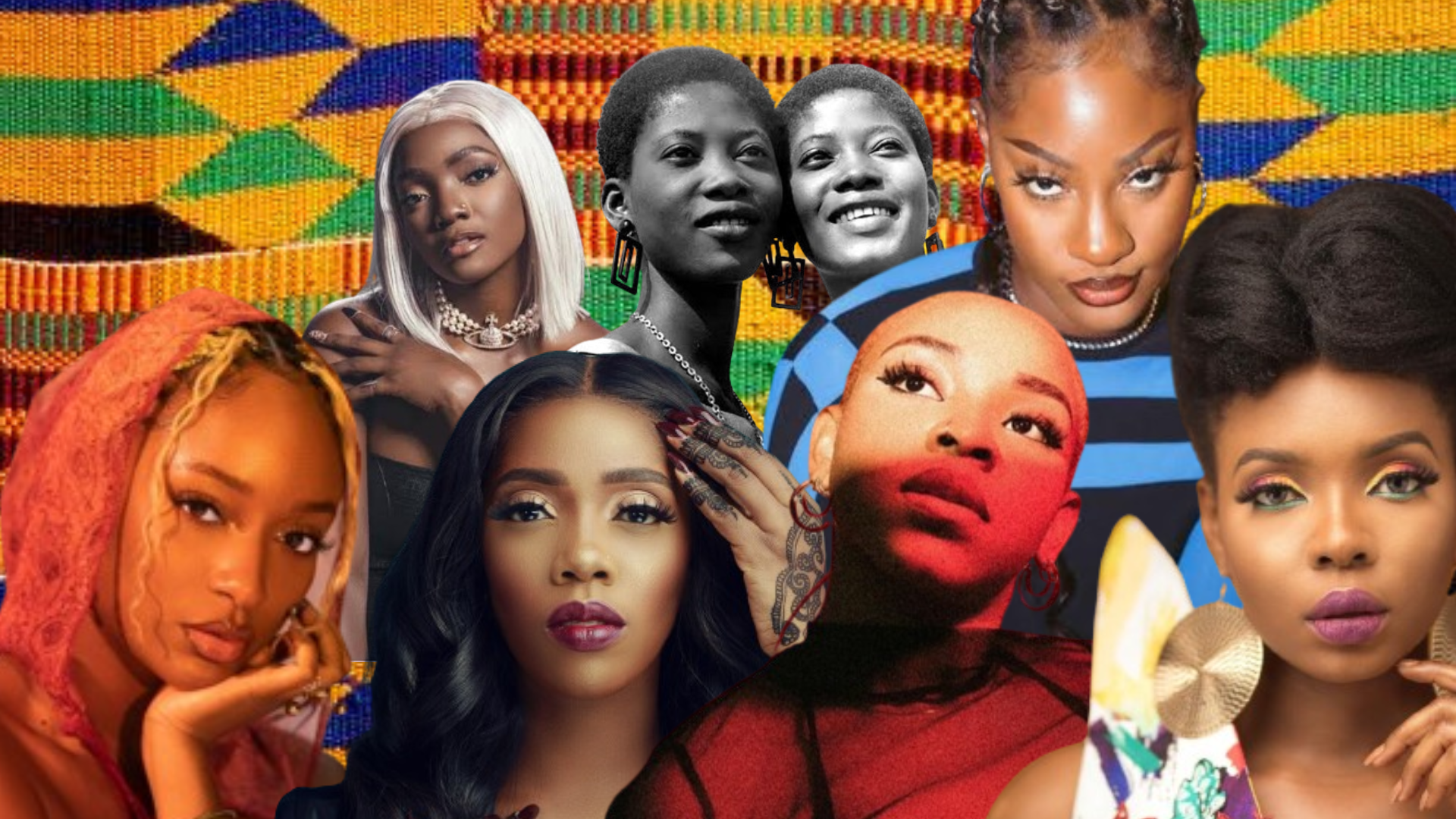Through the years, women have exhibited as much talent and artistry in music as their male counterparts. Take Nigerian pop, for example. From the oldies music of the Lijadu sisters to the groovy sounds of Ayra Starr, to the celestial voice of Tems, to the slinky lyrics of Tiwa Savage, and to the genre-defying music of Simi. Nigerian women have not been left out of this sonic revolution.
Yet it has hardly been a bed of roses for any of these women navigating through a male-dominated industry. The fight for visibility has also involved fighting against being seen as objects of sexual desire and money-making. These behind-the-scene scars hidden behind all the glitz have sometimes found their way to the public eye, while some of the scars themselves were inflicted upon these women by the said public. They are victims of a battle they have been forced into all because they were born female.
Let’s begin with one of the foremost female performers in Afrobeats—the Lijadu sisters. The Lijadu sisters were a musical duo that dominated the Nigerian pop scene in the second half of 20th century with their four albums of acid-fried funk, soul, Afrobeat, reggae licks, psychedelic organ jams and irresistible disco-laced grooves.
In an interview with Okayplayer series titled The Lijadu Lessons – the sisters talked about their musical choice to represent oppressed people; indeed, one of their most popular songs, “Orere Ejigbo” speaks of a revolution. Apart from their political advocacy, the sisters were also female empowerment advocates. In the same Lijadu Lessons series, they shared childhood lessons drummed into them by their mother, who taught them to always stand their ground and become independent women.
In a 2014 interview with The Guardian, the Lijadu sisters spoke of their struggles as female artists in male-dominated industry. “After we made our record, we tried to find a way of having our own band,” they said. “But at the time, we had a lot of obstacles from men. They would tell us that we were not coming here to stay. Now those people acknowledge that they were scared of us because we were very independent. Being a female musician then was a big struggle.”
In a rehearsal video dating back to 1979, the twin sisters spoke of how women were now taking careers. In the same video, they bemoaned the paucity of female artists in the West African pop scene.
As female artists, the Lijadu sisters faced similar mistreatment from their record label. Speaking about it, one of the sisters, Kehinde, said: “It’s like you should be a baby to these record labels, because you are the one making money for them, but the other side of the coin is that they don’t care; they don’t give a flying flick about the artist; all they do is sap and sap.”
A century later, women in the Nigerian pop scene continue to fight against dominant male forces within the industry, who have become rather subtle in their attacks.
One of such victims is Tiwa Savage, an Afrobeat sensation whose acclaim has not shielded her from the monster of the Nigerian music industry. In a 2021 interview with Angie Martinez, Tiwa Savage announced that she was a victim of blackmail. Rather than draw sympathy, Tiwa’s statement excited shaming remarks from the public. Some even suggested that Tiwa’s statement was a publicity stunt for “Somebody’s Son,” her latest single at the time with Brandy. When the sex tape was finally leaked, rumors were rife about Tiwa losing her endorsement deals. Yet when it came to the case involving a male colleague and his sextape, the public treated this with preferential leniency. Not only was he lauded by the public, but he also secured a major record deal in the wake of the incident. Even the lady embroiled in the sex tape was not spared the public tongue-lashing.
Simi, the Duduke crooner, has also been a victim of this many faced monster. one of the most recent instances of this was when a male musician, Olawale Oluforo, popularly known as Brymo, claimed that he had requested to have sex with Simi before they could feature in a song together. He claimed that the sex would enable them to have an artistic connection. Brymo had made this offer despite knowing that Simi was engaged to Adekunle Gold. If a woman as influential as Simi was a victim of such monstrosity, one can only imagine what younger and less influential females in the industry have been subjected to over the years.
One would think that Ayra Starr – the Gen Z Queen of Afropop would be untouchable by this monster now with the face of the public, but that is far from the truth. The self-acclaimed celestial being has been a victim of slut-shaming and whore-naming many times over the course of her four-year career. These acts were mostly done by men and morally-righteous people who felt it was their birthright to control how independent women would dress and present themselves in public. This most disheartening of this trend happened last year when a bunch of degenerates decides to post their AI-generated nudes on the microblogging platform X, formerly known as Twitter. They did so in the name of comedy, Is the dignity of another human worthy of death in the name of comedy? They do this in the name of the monster we have been speaking about.
Another instance of this vagrant monster in action is the 2023 Headies Award, where the award for female artist of the year was not announced on stage as with the rest of the major award categories. The winner, Ayra Starr, took to the microblogging platform X, formerly known as Twitter, to vent her displeasure.
“I will never be grateful for winning a category that wasn’t even deemed fit to be announced on stage ! Best female artist na beans? We work hard, every single one of us ! I’ve seen Tiwa record 4 hit songs in the same night. Tems breathes and lives for music. We didn’t deserve such nonchalance! Nigeria,you didn’t raise me to settle for less,” the artiste tweeted.
It’s evident that the Nigerian music scene has a monster problem, targeted at mostly women. The Nigerian music industry has a long way to go in its treatment of its female artistes. To correct this, the industry must first acknowledge this slithering chameleonic viper in its midst. Together, they must battle it if the industry hopes to be as equal and diverse as it claims to be.






